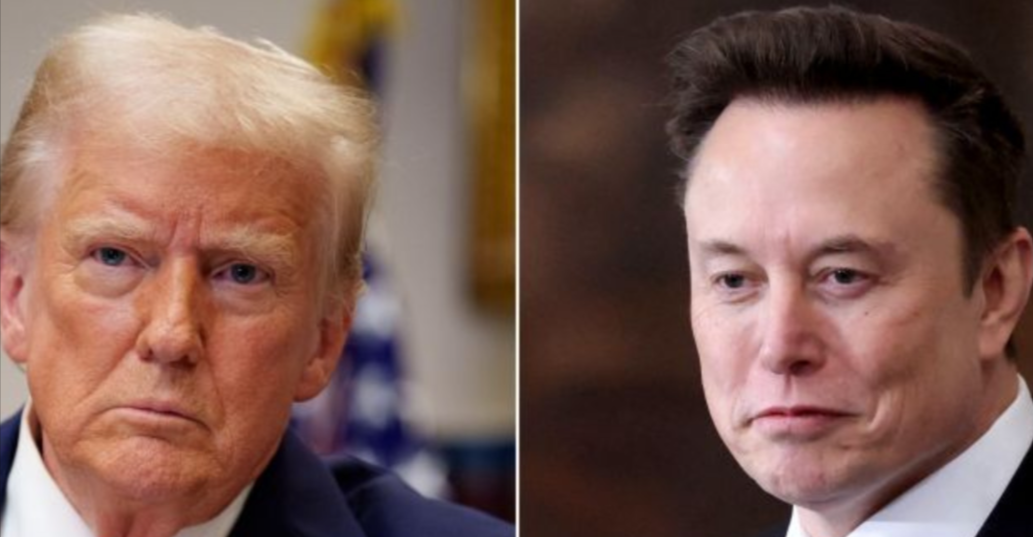DOGE Uncovers ‘Magic Money Computers’ Issuing Payments From Treasury
Billionaire tech mogul Elon Musk told Texas Senator Ted Cruz that mysterious “magic money computers” embedded within U.S. government departments are responsible for generating untraceable payments—leaving lawmakers largely in the dark about where the money is going.
Appearing on Cruz’s podcast, Musk claimed that 14 of these systems, housed across the Treasury Department and other federal agencies, are making substantial transfers without the proper documentation to support them.
According to Musk, when these systems are active in a department, reported financial data presented to Congress could be off by as much as 5% of the agency’s budget. Cruz speculated that these erroneous or undocumented payments could amount to “trillions” of dollars.

“They’re mostly at Treasury,” Musk said, referring to the findings of the U.S. Department of Government Efficiency (DOGE), the government unit he currently heads. “But there’s some at [Health and Human Services], there’s one or two at State, there’s some at [the Department of Defense].”
“I think we’ve found now 14 magic money computers. They just send money out of nothing,” he told Cruz during their discussion.
Musk explained that these systems obscure the true picture of government expenditures, making it difficult for lawmakers to get accurate financial data.
“You may think that government computers all communicate with each other, synchronize, and accurately calculate where funds are going, making the numbers you see as a senator the real ones. They’re not,” he explained.
Cruz asked, “How does it work?”
To which Musk replied bluntly: “It just issues payments!”
This phenomenon ties into the broader concept of modern monetary theory, which suggests that, as the issuer of its own currency, the federal government has the power to create money to meet its spending needs.
Recent media speculation suggested a rift between Musk and former President Donald Trump, alleging that Musk was preparing to step away from DOGE. However, Vice President J.D. Vance pushed back against those claims during a Fox News interview, calling the rumors “total fake news.” He specifically rejected a Politico report that claimed Trump was unhappy with Musk’s role.
Vance clarified that Musk’s position was always meant to be temporary—a special advisor appointment intended to last six months, focusing on streamlining federal operations and cutting red tape. The official time limit on such advisory roles is 130 days, due to end in late May or early June.
Despite the expiration date, Vance said Musk’s involvement wouldn’t stop.
“We said that’s going to take about six months, and that’s what Elon signed up for, but of course, he’s going to continue to be an advisor,” Vance said, adding that DOGE’s work would persist beyond Musk’s official tenure.
“The work of DOGE is not even close to done, the work of Elon is not even close to done,” Vance emphasized.
Vance also credited Musk with making significant strides in rooting out “fraudulent grants” and tackling abuse within the Social Security system.
“DOGE has got a lot of work to do, and that work is going to continue after Elon leaves,” Vance said. “But fundamentally, Elon is going to remain a friend and advisor of both me and the president, and he’s done a lot of good things.”
Musk’s aggressive approach to slashing federal spending, particularly on Democrat-favored initiatives and grants, has drawn fierce opposition from progressive groups. His company, Tesla, has even been targeted by activists, some of whom have resorted to vandalizing vehicles during public protests.
The controversy has created friction within the GOP as well, with some members urging Trump to keep some distance from Musk.
However, insiders dismissed any reports of a falling-out as completely unfounded, telling DailyMail.com that such speculation is “garbage” and “fake news.”
Musk later shared the press secretary’s rebuttal on social media, adding simply: “Yeah, fake news.”